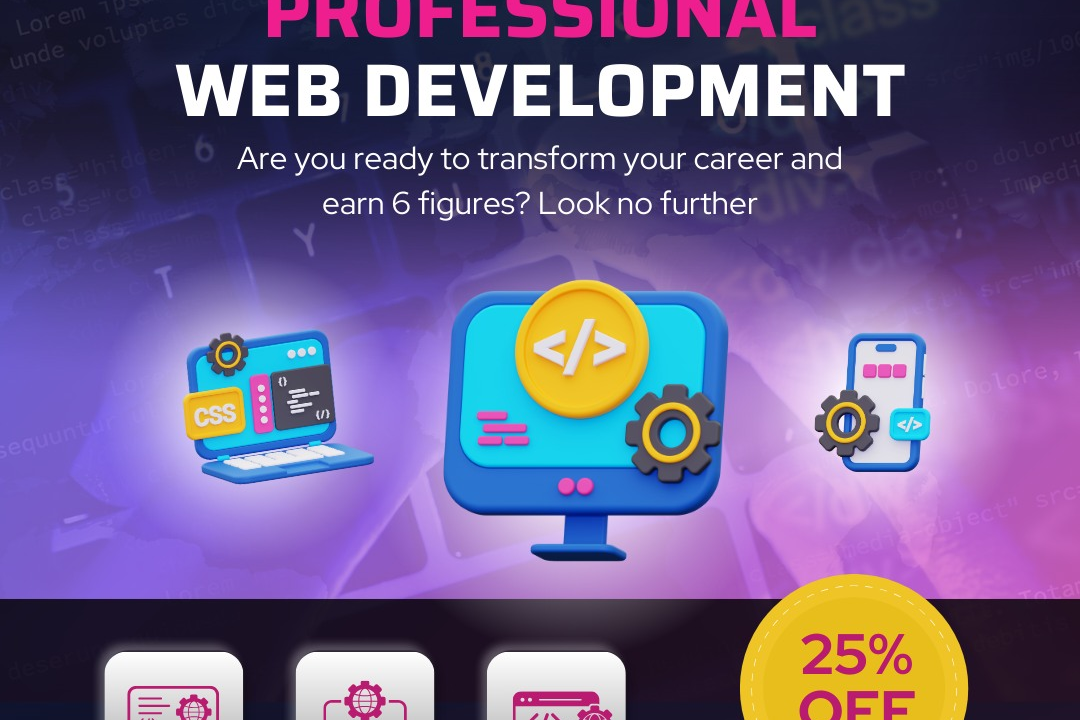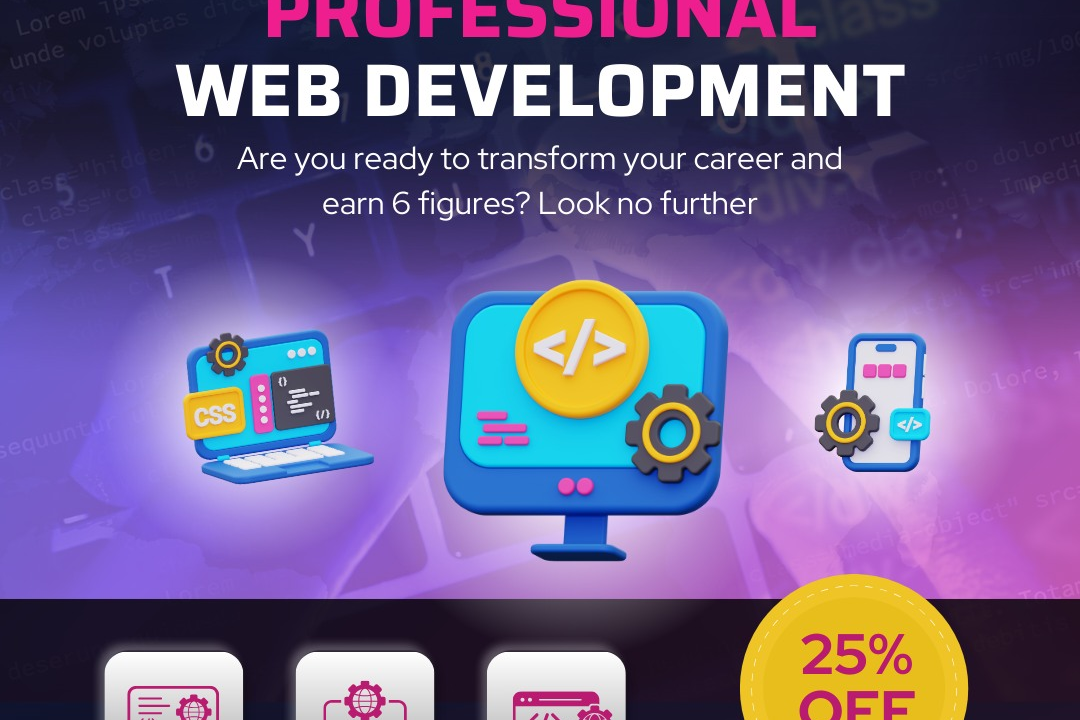Selenium Training Future Scope
Selenium training offers a comprehensive understanding of automated testing tools that are essential
Selenium Training Future Scope
Selenium training is pivotal for anyone looking to establish a career in software testing, as it equips professionals with the skills to automate web applications seamlessly. With the ongoing shift towards DevOps and continuous delivery methodologies, the demand for automation testing is surging, making Selenium expertise increasingly valuable. By mastering Selenium, individuals can not only enhance their testing efficiency but also contribute to faster deployment cycles and improved software quality. As businesses continue to prioritize automation to meet evolving market demands, the future scope for Selenium-trained professionals remains robust, offering numerous career opportunities in an ever-expanding tech landscape.
To Download Our Brochure: https://www.justacademy.co/download-brochure-for-free
Message us for more information: +91 9987184296
Selenium training is pivotal for anyone looking to establish a career in software testing, as it equips professionals with the skills to automate web applications seamlessly. With the ongoing shift towards DevOps and continuous delivery methodologies, the demand for automation testing is surging, making Selenium expertise increasingly valuable. By mastering Selenium, individuals can not only enhance their testing efficiency but also contribute to faster deployment cycles and improved software quality. As businesses continue to prioritize automation to meet evolving market demands, the future scope for Selenium trained professionals remains robust, offering numerous career opportunities in an ever expanding tech landscape.
Course Overview
The “Selenium Training: Future Scope” course provides an in-depth understanding of Selenium, a leading automation testing framework used for web applications. Participants will learn fundamental and advanced concepts, including test automation principles, Selenium WebDriver, scripting, and integration with frameworks like TestNG and JUnit. The course also encompasses hands-on projects, ensuring practical experience in real-world scenarios. With the increasing emphasis on automation in the software development lifecycle, this training prepares students for lucrative career opportunities in automation testing. By the end of the course, attendees will possess the skills and knowledge necessary to thrive in a competitive job market, making them valuable assets to any development team.
Course Description
The “Selenium Training: Future Scope” course is designed for aspiring automation testers and software quality assurance professionals, offering comprehensive coverage of Selenium's powerful automation capabilities. Participants will explore fundamental concepts and advanced features of Selenium, including WebDriver, and learn to develop robust test scripts for web applications. Through practical, hands-on projects, learners will gain real-world experience and insights into best practices for test automation. With the growing demand for efficient automation testing in the software industry, this course equips students with the essential skills and knowledge to excel in their careers, opening doors to rewarding job opportunities in quality assurance and software testing.
Key Features
1 - Comprehensive Tool Coverage: Provides hands-on training with a range of industry-standard testing tools, including Selenium, JIRA, LoadRunner, and TestRail.
2) Practical Exercises: Features real-world exercises and case studies to apply tools in various testing scenarios.
3) Interactive Learning: Includes interactive sessions with industry experts for personalized feedback and guidance.
4) Detailed Tutorials: Offers extensive tutorials and documentation on tool functionalities and best practices.
5) Advanced Techniques: Covers both fundamental and advanced techniques for using testing tools effectively.
6) Data Visualization: Integrates tools for visualizing test metrics and results, enhancing data interpretation and decision-making.
7) Tool Integration: Teaches how to integrate testing tools into the software development lifecycle for streamlined workflows.
8) Project-Based Learning: Focuses on project-based learning to build practical skills and create a portfolio of completed tasks.
9) Career Support: Provides resources and support for applying learned skills to real-world job scenarios, including resume building and interview preparation.
10) Up-to-Date Content: Ensures that course materials reflect the latest industry standards and tool updates.
Benefits of taking our course
Functional Tools
1 - Selenium WebDriver
Selenium WebDriver is the core component of the Selenium suite and is essential for automating web applications across multiple browsers. It provides a programming interface to create and execute test scripts in various programming languages such as Java, C#, Python, and Ruby. Students will learn how to interact with web elements, perform actions like clicks and form submissions, and handle dynamic content. The flexibility and robustness of WebDriver make it the most widely used tool in automated testing, enabling students to understand the underlying mechanics of web interactions.
2) Selenium Grid
Selenium Grid allows testers to run tests on different machines and browsers simultaneously, providing a way to expedite testing processes significantly. Students will learn how to set up a Selenium Grid, manage remote machines, and distribute tests across various environments to achieve parallel execution. Mastery of Selenium Grid prepares students to handle large scale testing efforts efficiently, essential for projects requiring quick delivery cycles. This tool emphasizes the importance of scalability in test automation, giving students practical experience in optimizing test performance.
3) TestNG
TestNG is a testing framework inspired by JUnit but designed to overcome its limitations. It provides powerful features such as grouping, prioritizing test methods, and data driven testing, which are essential for organizing complex test suites. In the training program, students will delve into how to structure tests using annotations, manage dependencies, and generate comprehensive test reports. Understanding TestNG is vital because it enhances the effectiveness of automation tests, allowing for better management and execution of test cases in varied scenarios.
4) Maven
Maven is a build automation and project management tool that plays a crucial role in managing project dependencies in Java based projects. By using Maven alongside Selenium, students will learn how to automate the building process, manage libraries, and streamline development workflows. The training will cover how to integrate Maven into their projects, making it easier to maintain and scale automation endeavors. Knowledge of Maven contributes significantly to students’ capabilities in creating efficient automation frameworks and ensures that they are well versed in standard industry practices.
5) Git
Git is a version control system that is essential for collaborating on software projects. During the training, students will learn how to effectively use Git for managing code versions, collaborating with team members, and maintaining the history of their automation scripts. Understanding Git commands and workflows enables students to work in agile environments where team collaboration is crucial. Familiarity with Git enhances their employability and equips them to seamlessly integrate into real world development and testing teams.
6) Jenkins
Jenkins is an open source automation server that facilitates continuous integration and continuous delivery (CI/CD) practices. In this training program, students will understand how to integrate Selenium tests with Jenkins to automate test executions, streamline the build process, and improve software quality. They will learn to create Jenkins pipelines that allow for automated testing in a CI/CD environment, significantly enhancing the deployment efficiency. Mastering Jenkins will empower students to ensure timely delivery of quality software by integrating testing seamlessly into the development cycle.
7) Cucumber
Cucumber is a tool that supports Behavior Driven Development (BDD), allowing for the writing of test cases in natural language, which makes them accessible to non developers. In the JustAcademy training program, students will learn to create feature files using Gherkin syntax and integrate Cucumber with Selenium WebDriver. This combination enhances collaboration between technical and non technical team members, fostering better communication regarding software requirements and expected behavior. Understanding Cucumber helps students grasp the importance of stakeholder involvement in the testing process and equips them with advanced testing methodologies.
8) Page Object Model (POM)
The Page Object Model is a design pattern that enhances test maintenance and reduces code duplication in automated testing. Students will learn how to structure their Selenium tests using POM, which involves creating separate classes for different pages in the application under test. This separation of concerns simplifies test management and improves code readability and reusability. Mastery of POM is crucial for students to develop robust test frameworks, making their automation efforts more scalable and easier to maintain as applications evolve.
9) API Testing
API testing is an essential aspect of ensuring the functionality and reliability of application's backend logic. In this segment of the training, students will be introduced to tools such as Postman and REST assured for testing APIs alongside Selenium. They will learn how to validate API responses and integrate API tests with UI tests to achieve comprehensive coverage. Understanding API testing prepares students for the integrative nature of modern software applications where front end and back end interactions are crucial.
10) Test Automation Frameworks
The training program will cover the different types of test automation frameworks, including keyword driven, data driven, and hybrid frameworks. Students will learn how to choose the appropriate framework based on project needs and how to implement frameworks that enhance test automation strategies. Familiarity with these frameworks allows students to design more flexible and reusable test cases, facilitating easier upgrades and modifications as projects grow.
11 - Performance Testing with Selenium
While Selenium is predominantly used for functional testing, students will explore how it can be integrated into performance testing strategies. Understanding the limitations and common pitfalls of using Selenium for performance testing will empower students to make informed decisions regarding when to leverage it versus using specialized tools like JMeter or LoadRunner. This knowledge ensures a well rounded skill set in both functional and performance testing practices.
12) Handling Dynamic Content
Web applications often feature dynamic content that changes based on user interactions or real time data. The training will include strategies for effectively handling such scenarios in Selenium, including techniques for waiting for elements, handling AJAX calls, and working with JavaScript heavy applications. Mastering these skills will prepare students to effectively test applications that utilize modern web technologies, ensuring reliable automation scripts under varying conditions.
13) Continuous Testing Practices
Students will also explore the concept of continuous testing within the context of DevOps and Agile methodologies. The training will cover best practices for integrating automated tests into the development pipeline and promoting a culture of quality throughout the software development lifecycle. Understanding continuous testing ensures that students are well equipped to contribute to teams that prioritize automation and rapid delivery without compromising on quality.
14) Test Reporting and Logging
Generating meaningful reports and logs is critical for monitoring automated testing progress and outcomes. Students will learn how to use tools and libraries for generating reports, such as Allure and ExtentReports, in conjunction with their test automation frameworks. Effective test reporting aids in identifying issues quickly and improves communication within teams, making it an essential skill for aspiring automation testers.
15) Error Handling and Debugging
Understanding how to gracefully handle errors and debug automated tests is vital for maintaining test reliability. The training will address common exceptions in Selenium and strategies for implementing robust error handling mechanisms. Students will learn troubleshooting techniques that allow them to identify and resolve issues promptly, ensuring that their automated tests yield reliable results.
By equipping students with these comprehensive skills and knowledge areas, JustAcademy ensures they are well prepared to face the challenges of modern software development and testing environments. The real time project experience enriches their learning, enabling practical application of the concepts taught throughout the program.
Browse our course links : https://www.justacademy.co/all-courses
To Join our FREE DEMO Session:
This information is sourced from JustAcademy
Contact Info:
Roshan Chaturvedi
Message us on Whatsapp:
Email id: info@justacademy.co












